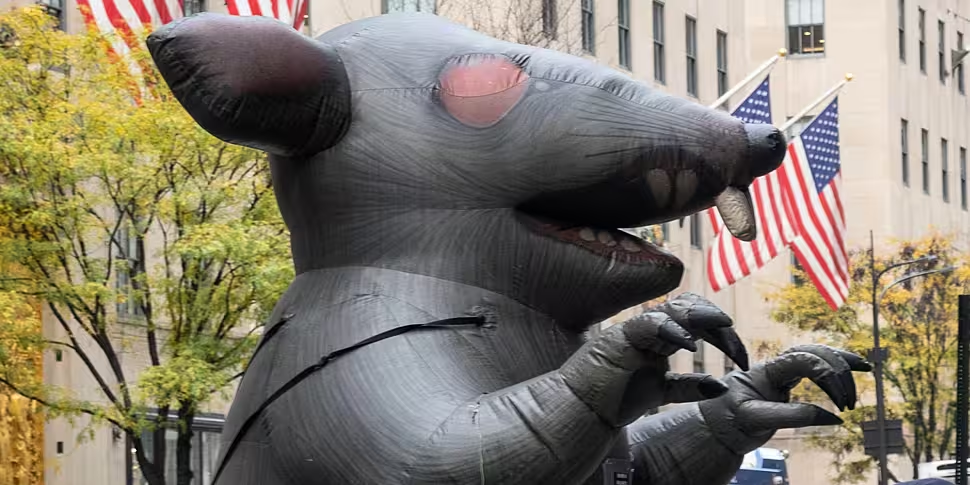A plan to introduce birth control into the rat population of New York may have unintended consequences, a broadcaster has warned.
The US city is running the trial programme which will see contraceptive pellets placed in special rat-accessible traps next year.
The containers will be checked every month to see how much is left, in order to gauge how the rodents are taking to the product, called Contrapest.
Senestech, the company that makes the plant-based product, claims it prevents rats from reproducing for 45 days per dose, reducing populations humanely without endangering other animals or the environment.
The company says its ingredients induce a kind of menopause in females and limit sperm production in males.
Broadcaster Éanna Ní Lamhna told Lunchtime Live the plan could inadvertently affect other animals.
"What they're doing is scattering this contraceptive material in rat-friendly traps, whatever they are, around the place in the wild," she said.
"So how will they ensure that only rats go? Why would moles, shrews and other non-target small mammals not go in and eat it as well?
"It's not a closed system, there's other wildlife there besides rats - how is this going to affect those?"
'Why is New York so filthy?'
Ms Ní Lamhna suggested New York's rat problem has been caused by humans not animals.
"You only get rats where there's people - why are they so filthy in New York?
"Putting all their garbage, as they call it, out on the sidewalk inside in trash bags - plastic bags that the rats can rip open.
"If you feed them they'll come, if you provide food and shelter for them you will have rats.
"Is there any testing done that this only affects rats?
"If the rat is eaten by something else higher up the food chain, will the contraceptives have an impact on whatever eats the rat?"
'They have to consume it'
Trevor Hayden from Complete Pest Control told the show he doesn't think the plan will work.
"The issue is... that they have to be taking this regularly," he said.
"How can you control that they will consume it every 45 days?
"I think it's an ambitious plan. I don't think it's going to work, though".
'A great idea in theory'
Mr Hayden said the approach in New York is not entirely new.
"Within the pest control world this is not new," he said.
"When dealing with insects we can actually disrupt the breeding cycle.
"So the theory is following what's been done already, they're just trying to implement it on the rodent side.
"In theory it's a great idea - it reduces the use of rodenticides, which is basically an anticoagulant.
"It's the poison that we use and the risk with that is that it works its way up into the food chain."
 The Midtown Manhattan skyline in New York, 26-07-2020. Image: Richard B. Levine/SIPA USA/PA Images
The Midtown Manhattan skyline in New York, 26-07-2020. Image: Richard B. Levine/SIPA USA/PA ImagesMr Hayden said the plan came from the death of a famous owl in the Big Apple.
"I believe there was a famous owl in New York, and that's kind of what prompted all this," he said.
"The owl was killed and there was rodenticide found in the actual owl itself," he added.
The 12-month pilot scheme in New York has been dubbed 'Flaco's Law' as it has been inspired by the city's famous Flaco the owl.
Flaco captured the hearts of New Yorkers last year by escaping from the city zoo and staying at liberty for a year before being found dead in February with rat poison in his system.









